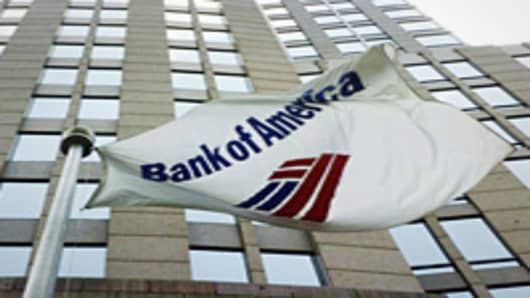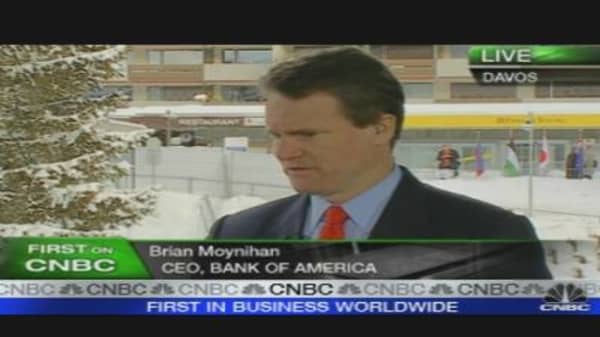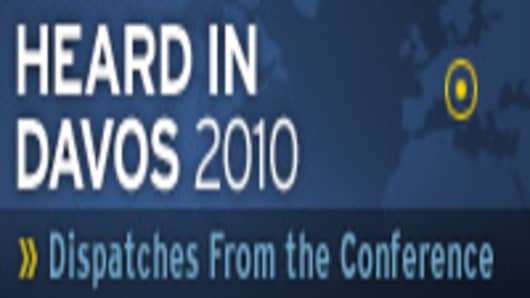Bank of America and other Wall Street banking giants do not need to be broken up to protect the global economy from another financial crisis, Brian Moynihan, CEO of Bank of America, told CNBC Friday.
"Bank of America is not too big," Moynihan said at the World Economic Forum in Davos, Switzerland. "Big by definition is not the question, it's a question of how you conduct your activities, how you manage activities and how you manage risk."
U.S. President Barack Obama outlined his aggressive plans to curb risk in the financial sector earlier this month. If passed into law, some banks could be broken up in order to separate their traditional banking operations from their riskier units, such as proprietary trading.
Moynihan said that the banking industry is set to "engage" with new regulations, but it is already "healing". He pointed out that BofA and other institutions have made strides in recapitalizing balance sheets.
"I think the role that government is trying to play is to make sure the institutions remain stable through all kinds of crises and I think that's an absolutely appropriate role for the government to play," Moynihan said.
Moynihan, who replaced former BofA CEO Ken Lewis earlier this month, stopped short of agreeing with Obama's plans to break up the banks.
- Watch the full interview with Brian Moynihan above.
"I think the idea of not having our $250 billion of capital there for our clients across the board is actually an idea which wouldn't have solved the last problem and won't solve the next," he said.
Barclays President Bob Diamond said earlier in the week that big is not necessarily bad in the banking sector.
"There is absolutely no evidence...to say big is bad or big is riskier," Diamond told CNBC in Davo.
"Banks aren't big because they want to be big, banks are big because their customers need them to be big," he added.
Credit default swaps and other "esoteric" financial instruments, which were blamed for exacerbating the financial crisis, aren't necessarily bad, but should be used in moderation, Moynihan said.
"The idea is to use them in moderation and to use them effectively and frankly for the capital market side not to store risk, which was part of the problem," he said.
The problems occurred when institutions started "storing risk of the esoteric securities as apposed to transmitting risk out to the market," he said. "I think that's the lesson learned as apposed to the instruments by themselves being good or bad."





